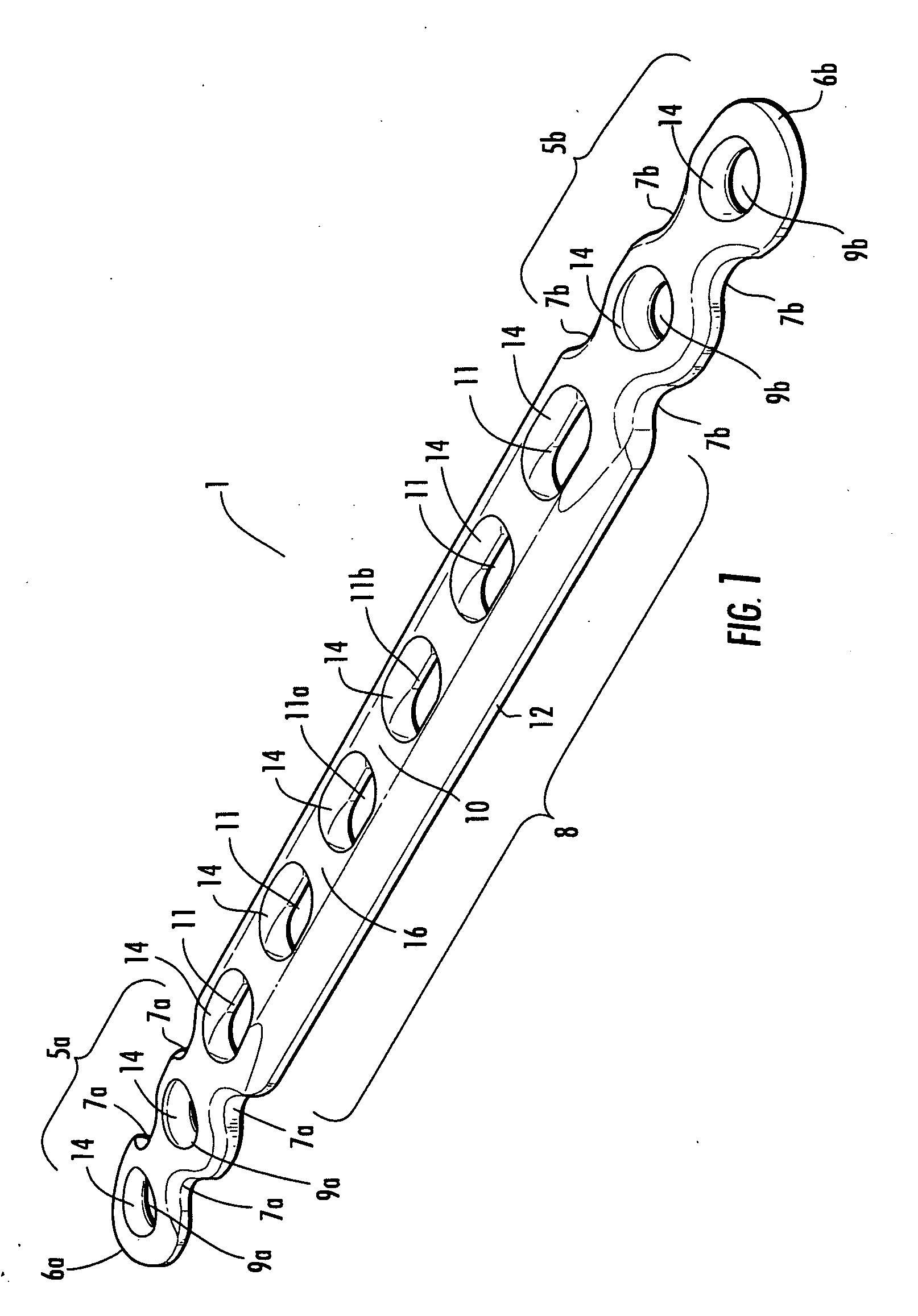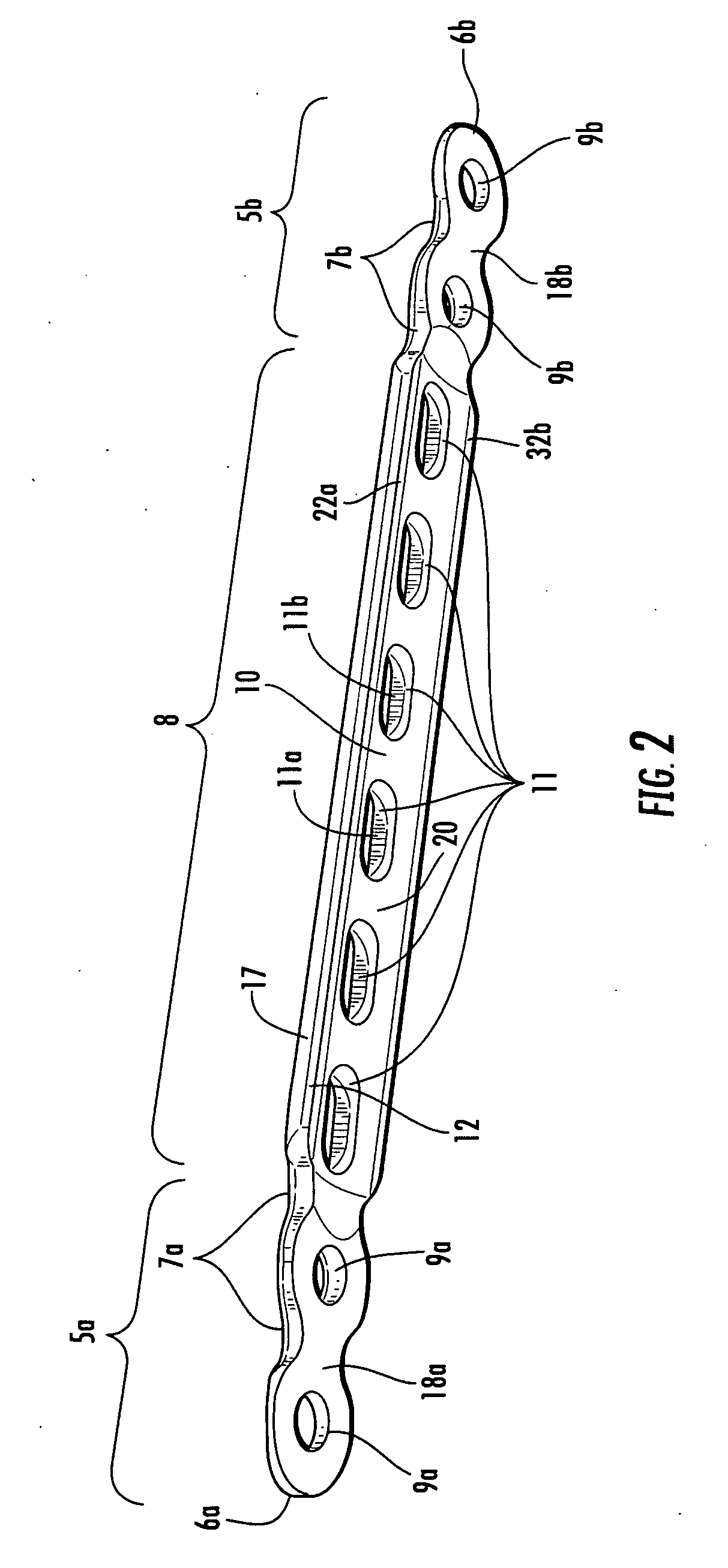Clavicle plate and screws
a technology of clavicle and screw, which is applied in the field of bone plates, can solve the problems of increased displacement, unsatisfactory patient-oriented outcome, and 15% non-union rate, and achieve the effect of reducing patient palpability and sufficient strength
- Summary
- Abstract
- Description
- Claims
- Application Information
AI Technical Summary
Benefits of technology
Problems solved by technology
Method used
Image
Examples
Embodiment Construction
[0027]Overview
[0028]A bone fixation plate, a bone plating system, and method of plating a discontinuous bone of irregular shape are disclosed. The bone plating system includes two types of implantable devices: a bone fixation plate and bone screws. Optionally the system includes a third type of implantable device: fragment screws. As used herein, any reference to plate means bone fixation plate unless otherwise noted. Also as used herein any reference to screws includes both bone screws and fragment screws unless otherwise noted. The plate and screws of the plating system are especially suitable for midshaft displaced clavicle fractures. A midshaft displaced clavicle fracture is a fracture that occurs in the middle of the clavicle and one of the bone segments is displaced, the two bony ends generally being offset side-to-side and telescoped end-to-end. This also includes a fracture where there are more than two segments and one segment may be floating.
[0029]In operation the bone pla...
PUM
 Login to View More
Login to View More Abstract
Description
Claims
Application Information
 Login to View More
Login to View More - R&D
- Intellectual Property
- Life Sciences
- Materials
- Tech Scout
- Unparalleled Data Quality
- Higher Quality Content
- 60% Fewer Hallucinations
Browse by: Latest US Patents, China's latest patents, Technical Efficacy Thesaurus, Application Domain, Technology Topic, Popular Technical Reports.
© 2025 PatSnap. All rights reserved.Legal|Privacy policy|Modern Slavery Act Transparency Statement|Sitemap|About US| Contact US: help@patsnap.com



